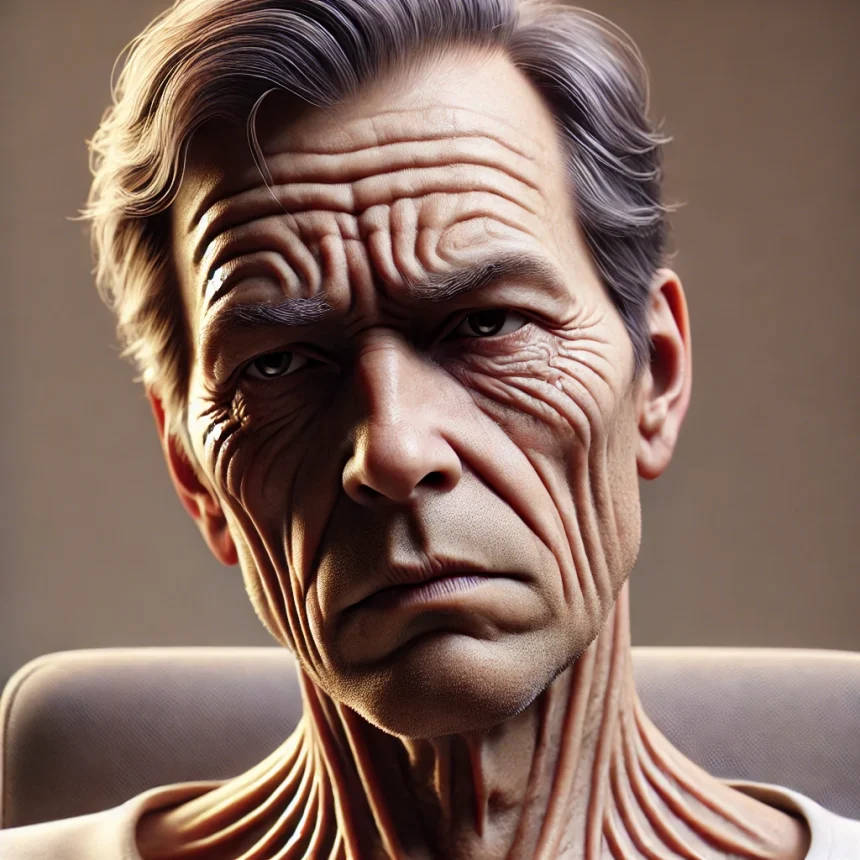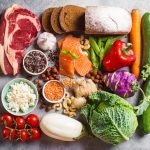Aging is a natural part of life, but external factors such as sun exposure, stress, and daily habits can significantly accelerate the process. Surprisingly, up to 80% of skin aging is influenced by lifestyle choices rather than genetics. This article explores 10 habits that may secretly be causing you to age faster than you realize and offers insight into how you can counteract these effects.
How Your Daily Habits Impact Aging
Not Getting Enough Sleep
Sleep is an essential period for the body’s recovery and maintenance. During deep sleep, your body repairs damaged tissues, produces collagen, and regenerates cells that help maintain skin elasticity and firmness. Inadequate sleep disrupts these processes, leading to visible signs of aging, such as wrinkles and dull skin.
Poor sleep quality also affects cognitive function, contributing to memory loss and slower reaction times, which are often linked with cognitive aging. Researchers have also associated chronic sleep deprivation with a higher risk of neurodegenerative diseases, such as Alzheimer’s.
Prioritize quality sleep of 7–8 hours to maintain a youthful appearance and protect your brain health.
Excessive Screen Time
Spending too much time on digital devices exposes your skin to blue light, also known as high-energy visible light. Blue light penetrates deeper into the skin than UV rays, damaging collagen and elastin fibers. This accelerates the formation of wrinkles, fine lines, and pigmentation.
Excessive screen time can also lead to “tech neck,” where constantly looking down at devices causes wrinkles and sagging skin on the neck. This, combined with poor posture, can make you look older than your actual age.
Additionally, extended exposure to screens may negatively affect mental health and weaken the immune system, further accelerating the aging process.
Skipping Sunscreen
Skipping sunscreen is one of the worst habits when it comes to premature aging. Both UVA and UVB rays from the sun damage skin cells. UVA rays penetrate deep into the skin and break down collagen, causing sagging and wrinkles. UVB rays primarily cause sunburn and DNA damage.
Over time, unprotected exposure to UV rays leads to “photoaging,” which results in age spots, fine lines, and uneven skin tone. Worse still, it increases the risk of skin cancer.
Protect your skin by applying sunscreen daily, even when it’s cloudy.
Consuming Too Much Sugar
Eating too much sugar triggers a biochemical reaction called glycation. This process damages collagen and elastin fibers in your skin, which are responsible for maintaining firmness and elasticity. Over time, your skin begins to sag, wrinkle, and lose its glow.
Excess sugar also leads to higher insulin levels, which can cause inflammation and oil production in the skin, resulting in acne and a rough texture.
Additionally, sugar impairs your skin’s ability to retain moisture, leaving it dry, dull, and prone to fine lines.
Chronic Stress
When stress becomes chronic, it leads to elevated cortisol levels, which break down collagen and elastin. This contributes to sagging skin, wrinkles, and a dull complexion. Chronic stress also shortens telomeres—the protective caps at the ends of DNA strands—accelerating cellular aging.
Oxidative stress, which is exacerbated by chronic stress, leads to skin cell damage and premature aging. Managing stress is key to maintaining a youthful appearance and protecting your overall health.
Dehydration
Dehydration deprives your body of the moisture it needs to maintain healthy cell function, leading to dry, dull skin. This lack of hydration accelerates the formation of fine lines and wrinkles, as your skin becomes less elastic.
Dehydration also hampers cellular regeneration, leading to rough texture, uneven skin tone, and visible aging effects.
Drink enough water daily to support your skin’s moisture barrier and overall health.
Smoking
Smoking introduces harmful substances like nicotine and carbon monoxide into the body, which significantly impair its ability to repair and regenerate. Smoking narrows blood vessels, reducing blood flow to the skin and depriving it of oxygen and essential nutrients. This leads to a pale, dull complexion and the formation of wrinkles, particularly around the mouth and eyes.
Smoking also accelerates collagen breakdown, leaving the skin less elastic and prone to sagging. Over time, it results in premature aging signs such as deep lines and a leathery texture.
Excessive Alcohol Consumption
Alcohol dehydrates the body, robbing your skin of essential moisture. This leads to dry, dull skin and makes fine lines and wrinkles more noticeable. Excessive alcohol consumption also impairs liver function, reducing its ability to detoxify the body. This buildup of toxins can lead to skin redness, puffiness, and broken blood vessels, particularly around the nose and cheeks.
Over time, alcohol-induced liver stress may contribute to chronic inflammation and a weakened immune system, accelerating the aging process.
Poor Diet Lacking in Antioxidants
A diet low in antioxidants allows free radicals to accumulate, causing oxidative stress and accelerating aging at a cellular level. Antioxidants help neutralize free radicals, which are generated by environmental factors such as UV radiation, pollution, and smoking.
Omega-3 fatty acids and other essential nutrients found in antioxidant-rich foods, such as fish and flax seeds, help protect the skin from aging. A poor diet lacking these nutrients accelerates the aging process.
Sedentary Lifestyle
Lack of physical activity leads to muscle atrophy, reducing physical strength and contributing to frailty—common signs of aging. Sedentary habits also lead to poor circulation, depriving the skin and other tissues of oxygen and essential nutrients. This results in pale, dull skin and slower wound healing.
A sedentary lifestyle also contributes to weight gain, particularly visceral fat, which increases the risk of metabolic diseases such as type 2 diabetes. Regular physical activity is essential for maintaining a youthful appearance and promoting overall health.
5 Foods That Help Maintain Youthfulness
Blueberries
Rich in antioxidants like vitamin C and anthocyanins, blueberries help neutralize free radicals that contribute to skin aging. They also support collagen production, maintaining skin elasticity and preventing wrinkles.
Avocados
Avocados are packed with healthy fats, particularly monounsaturated fats, which hydrate and nourish the skin. They also contain vitamin E, an antioxidant that protects against UV damage and premature aging.
Fatty Fish
Fatty fish like salmon are high in omega-3 fatty acids, which reduce inflammation and keep the skin moisturized from within. Omega-3s support skin cell membranes and promote smooth, youthful skin.
Nuts (Especially Almonds)
Almonds are rich in vitamin E, which helps protect the skin from oxidative damage. They also contain healthy fats that maintain skin hydration and reduce the appearance of fine lines and wrinkles.
Dark Leafy Greens
Leafy greens such as spinach and kale are loaded with nutrients like vitamins C, E, and K, which support collagen production and protect against sun damage. These greens help maintain skin firmness and elasticity while reducing the appearance of dark circles and age spots.
Conclusion
By avoiding these 10 common habits and making healthier lifestyle choices, you can significantly slow down the aging process and maintain a youthful appearance. Small daily adjustments, such as getting enough sleep, managing stress, and eating antioxidant-rich foods, will go a long way in keeping you looking and feeling vibrant.
Disclaimer:
Remember, moderation is key, and it’s always best to consult with a healthcare professional before making any significant dietary changes.









